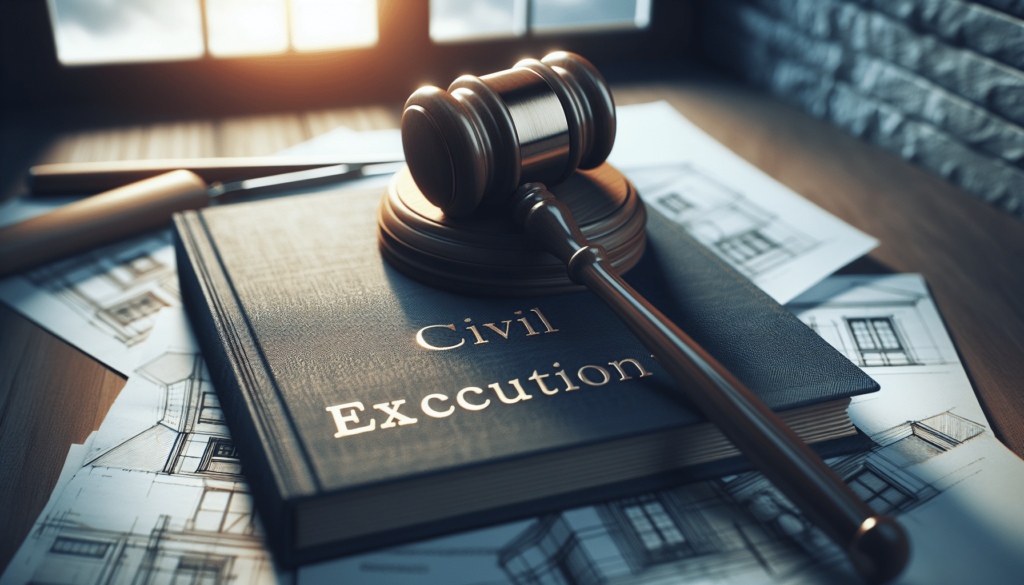There are a number of specific aspects to a lawyer's jurisdiction in property seizures that need to be clarified.
The lawyer's jurisdiction in property seizures
Article R. 311-4 of the Code of Civil Enforcement Procedures states that "Unless otherwise stipulated, the parties are obliged to constitute a lawyer.
Article R. 322-27 of the same code specifies that "The debtor's request for authorisation of the amicable sale of the property, as well as the acts subsequent to this sale, do not require the assistance of a lawyer. This request may be made orally at the orientation hearing.
The property seizure procedure is therefore subject to an atypical system in which the principle is that the parties must be represented by a lawyer, with an exception allowing the debtor to apply alone for authorisation to sell his property out of court.
This solution encourages and facilitates an amicable sale, which is often the most favourable for debtors who do not wish to dispute their debts, by removing any obstacles that might stand in the way.
There remain the specific cases of the exercise of the right of substitution by the tenant or occupier in good faith, or the exercise of the right of pre-emption by the lessee on a rural lease, by the land development and rural establishment companies (SAFERs) and by public authorities.
In the case of tenants or occupiers acting in good faith, article 10 II of law no. 75-1351 of 31 December 1975 relating to the protection of occupiers of premises for residential use states that they must "may, during a period of one month from the date on which he became aware of the auction, declare that he is standing in for the successful bidder". (under conditions that will be analysed on another occasion).
Article L. 412-11 of the French Rural Code stipulates that for lessees of rural leases "In the case of a sale by voluntary or compulsory auction, the lessee benefiting from the right of pre-emption must, on pain of the sale being declared null and void, be summoned to attend by registered letter with acknowledgement of receipt or by bailiff's deed, at least twenty days before the date of the auction, either by the notary responsible for the sale or, in the case of a sale brought before the court, by the chief clerk of the said court.
The lessee is given a period of twenty days from the date of the auction to inform the notary responsible for the sale or, in the case of a sale before the court, the chief clerk of the said court, of his decision to exercise his right of pre-emption. The exercise of the right of pre-emption either by the lessee himself or by a descendant under the conditions provided for in the third paragraph of article L. 412-5 shall imply for him the pure and simple substitution for the successful bidder."
The right of pre-emption of SAFERs (sociétés d'aménagement foncier et d'établissement rural) is exercised under the same conditions as for rural leaseholders, in application of the provisions of articles L. 143-7 and L. 143-8 of the French Rural Code.
Lastly, public authorities have pre-emptive rights under articles L. 210-1 et seq. and R. 213-5 et seq. of the French Town Planning Code. The procedures for exercising their right of pre-emption are set out in article R. 213-5, the third paragraph of which stipulates that "The holder [of the right of pre-emption] has thirty days from the date of the auction to inform the registrar or notary of his decision to substitute himself for the successful bidder.
Rural leaseholders and land development and rural establishment companies can now exercise their right of pre-emption directly, without the need for a lawyer.
The question of the involvement of a lawyer is not at all settled for public authorities or for tenants or occupiers acting in good faith, and the practices of the courts vary.
Some enforcement judges consider that pre-emption can be exercised directly by the right holder, but that all the steps must then be taken by a lawyer. In a way, this is a double system: the initial notification can be made by the holder of the right, who must then instruct a lawyer.
Other enforcement judges, on the other hand, consider that the lawyer must intervene as soon as the right of pre-emption is exercised, which is both :
- This is consistent with the provisions of the French Code of Civil Enforcement Procedures, and more specifically article R. 311-4, which states that unless otherwise stipulated, representation by a lawyer is mandatory,
- Inconsistent, given the rules applicable to rural leaseholders and SAFERs, which are exempt from this obligation: why apply different treatment to certain cases of pre-emption? This seems totally unjustified, as pre-emption in favour of a public authority is no more complicated than pre-emption in favour of a rural leaseholder or a SAFER.
Be that as it may, these difficulties have not yet been resolved by the Cour de cassation and, in case of doubt, it seems prudent to adopt the most rigid interpretation, according to which the involvement of a lawyer is compulsory from the moment that public authorities are notified of their right of pre-emption, and tenants or occupiers in good faith of the exercise of their right of substitution.
This illustrates just how complex the system of compulsory representation is in property seizures.
The lawyer's territorial jurisdiction in property seizures
The term "postulation means the representation of one or more parties in court.
When a lawyer represents a party before a court, he applies.
As a rule, lawyers are entitled to appear before all the courts within the jurisdiction of the court of appeal to which they belong.
This is known as multipostulation: the ability to appear before several courts.
There is no multi-postulation in property seizure cases. Lawyers may only appear before the court of the jurisdiction of the bar association with which they are registered.
The Macron Act No. 2015-990 of 6 August 2015, which introduced multi-postulation, made an exception for proceedings involving the seizure of immovable property, partition and licitation, for which "lawyers may not appear before a court other than the one in which they have their professional residence". (article 5, paragraph 2 of law no. 71-1130 of 31 December 1971).
A lawyer registered with the Marseilles bar may only represent a party in a property seizure case before the Marseilles court.
In practice, the lawyer will be able to intervene throughout the country by calling on a lawyer registered with the bar attached to the court before which the proceedings are being conducted.
Representation of the party is then divided: on the one hand, there is the postulant lawyer who represents the client before the court, and on the other hand, there is the lawyer who provides the intellectual direction of the trial and drafts all the documents, usually referred to as the "avocat postulant". dominus litis.




